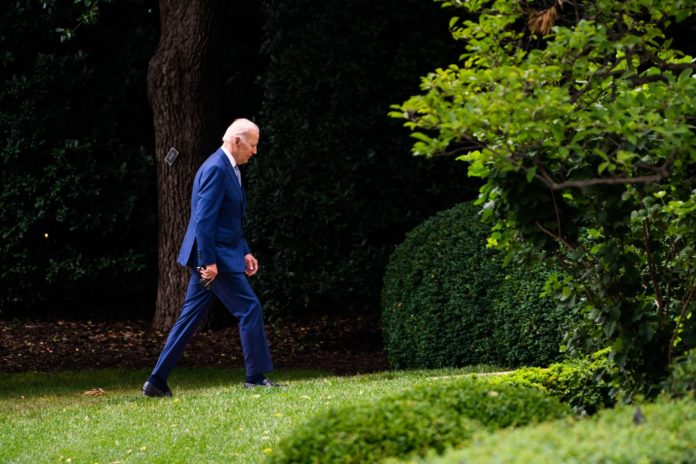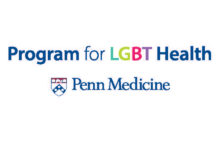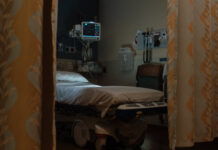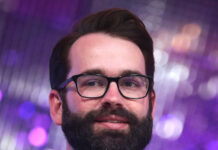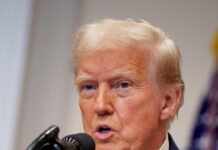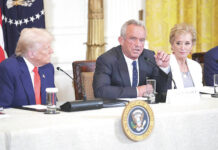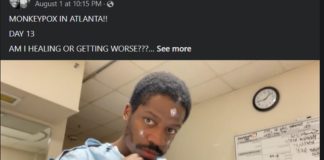
“It’s been unbelievably challenging,” said Lauren Sauer, director of the Special Pathogens Research Network within a government-funded consortium of medical centers focused on pathogens training and education. “It felt like January 2020 all over again.”
More than 150 monkeypox cases have been identified in the United States since May 19, federal officials said this week, and more than 3,300 cases have been detected in 42 countries around the world.
The rapidly rising global case counts have prompted the World Health Organization to convene an emergency committee on Thursday to assess whether the monkeypox outbreak represents a public health emergency of international concern — the agency’s highest-level warning, which currently applies only to the coronavirus and polio.
But as other nations have ramped up their efforts to track and prevent the spread of infection, experts say the United States has moved too slowly to expand access to monkeypox testing and vaccinate people at highest risk. The government’s failure to clearly and urgently communicate the symptoms and risks associated with monkeypox, a disease spread by close contact that can lead to fever, pain and a visible rash, has left gay and bisexual men who are disproportionately contracting the virus especially vulnerable, public health experts say.
The plodding U.S. response so far raises doubts about the country’s preparedness for the next pandemic, some administration officials say.
Communication about whom to test, when to test them and what monkeypox symptoms look like has been dismal, said Sauer, a public health expert at the University of Nebraska Medical Center.
Frustrations are running particularly high because, unlike the coronavirus, monkeypox has been studied for decades by global and U.S. experts who know the tools, strategies and vaccine protocols that can limit spread.
Biden administration officials on Wednesday said that they have amply prepared for a monkeypox outbreak, touting the government’s efforts to acquire more vaccine doses, warn the public about the emerging outbreak, and begin distributing tests to commercial labs across the country this week. They also insisted their response reflected lessons learned from fighting coronavirus, such as waiting to distribute the “right test that works” to laboratories after federal officials distributed flawed coronavirus tests in early 2020.
“All this work takes weeks to get it done right,” said Raj Panjabi, who leads the White House’s global health security efforts, reflecting on the “humility” that he said officials have tried to apply to monkeypox after struggles in containing the coronavirus and other outbreaks.
Clinicians, patients and some administration officials have faulted the Centers for Disease Control and Prevention for testing criteria that they say are too narrow and have resulted in long waits — sometimes multiple days — in identifying positive cases. Under the current framework, physicians who want a test for an individual suspected to have monkeypox must first consult with a state epidemiologist. State public health officials say that protocol helps identify people at highest risk so doctors can recommend isolation and take other steps to prevent community spread.
And just as in early 2020, when the coronavirus first menaced the United States, federal officials at first limited monkeypox testing to a network of several dozen public health laboratories — and did not authorize thousands of commercial laboratories and hospitals to perform their own testing, too.
Monkeypox testing is handled by 86 mostly state and local public health labs, with capacity for more than 8,000 tests a week, according to the CDC. But an official of a large city health department who is working directly on monkeypox response said that number is misleading, because the labs are not concentrated around the major metropolitan areas where the bulk of infections are detected.
Without better access to tests, which involves swabbing a lesion, it is impossible for public health officials to know the true prevalence of the disease.
Monkeypox has repeatedly emerged in Central and West Africa for decades, but the current outbreak has been occurring in countries that have not previously reported infections, raising concern about how and why the disease appears to be gaining a foothold in countries including Britain, Germany, Portugal and Spain.
The response has also been hindered by U.S. physicians’ lack of familiarity with the rare disease. The CDC initially publicized decades-old photos from more severe outbreaks in Africa, instead of the more subtle rashes detected in the recent global outbreak. The United States was far slower than Britain and Canada to distribute updated education materials, only recently sharing photos showing what the rashes look like on fair skin, said David Harvey, executive director of the National Coalition of STD Directors.
“One of the things that worries me right now is that we are seeing cases pop up in many countries, and we are also seeing numbers being reported in places that are much more aggressive in their surveillance than what we’ve seen here,” said Jennifer Nuzzo, an epidemiologist at Brown University’s School of Public Health.
While monkeypox has been spreading mostly among men who have sex with men, the disease is not specific to any one group. “If a woman doesn’t have a particular known risk factor, and some woman shows up in urgent care, what’s the likelihood that she is going to get found?” Nuzzo said.
In most cases, monkeypox symptoms disappear on their own within a few weeks. But for pregnant women, children and people with weak immune systems, the disease can lead to medical complications, including death, according to the WHO.
Two federal officials involved in the monkeypox response said there are “significantly” more cases across the United States that are being missed because testing for monkeypox had not been expanded beyond the network of public health laboratories.
“If we don’t move aggressively now, monkeypox is going to be that much harder to eradicate later — or it could even become endemic” in the United States, said one of the administration officials, who is among more than two dozen across the Department of Health and Human Services and the White House tasked with combating the outbreak and who spoke on the condition of anonymity because they are not authorized to speak to the press. Many of the same teams have been working on the coronavirus response.
On Wednesday, administration officials said they were authorizing five major commercial laboratories to test for monkeypox starting in early July, a dramatic expansion of capacity. That could allow labs to conduct tens of thousands of more tests a week. Health-care providers will be able to send specimens directly to the commercial labs for testing without having to first consult with state health officials to determine whether testing criteria are met. Activists say the move was overdue.
About 10 monkeypox tests per day were being performed nationwide in early June, even as other countries such as Britain were performing far more, a senior administration official said Wednesday. While laboratory testing ramped up last week, only about 700 total tests had been conducted as of June 17, the official said.
Before the CDC made its test widely available to commercial labs, the agency needed to update testing protocols, establish agreements with the five labs and ensure personnel had personal protective equipment and vaccinations to protect against infection, according to a senior public health official who spoke under Biden administration ground rules that they not be named.
One man who sought testing on June 13 in New York City for potential monkeypox symptoms — flu-like illness and swollen lymph nodes — was initially advised by a physician that he did not have the disease and did not need a test, said Joseph Osmundson, a virologist at New York University, who spent several days trying to help the individual obtain a test. The man had recently returned to New York from Portugal, where he said he had casual sex with other men. Health officials have advised clinicians to look out for travel-associated cases from Europe, and in situations in which men have had sex with men.
But the man told The Post his efforts to obtain a test were repeatedly rebuffed — even after he was found to have “abnormal HPV-like lesions” that weren’t readily visible.
“The pain has been like someone stabbing me from inside — I couldn’t sit, I couldn’t sleep,” said the man, who spoke on the condition of anonymity to protect his privacy. He said he went to four different providers, including a major New York City hospital, before an urgent care clinic collected a specimen on Monday. While clinicians classified him as “presumed positive,” he said he was still waiting on results as of Wednesday evening.
Osmundson said he was aware of a dozen similar cases in which people with possible monkeypox symptoms were being rebuffed.
“The CDC is very narrowly defining criteria for testing, and the [New York] Department of Health is not going outside those criteria. So if you don’t check off on every single one of the boxes, based on CDC, you don’t get access to testing,” Osmundson said.
Michael Lanza, a spokesman for the New York City Department of Health and Mental Hygiene, confirmed that providers must contact the agency to evaluate the case and determine whether testing is necessary. He said officials have not denied testing requests except in cases with no rash or no known risk factors.
James Krellenstein, co-founder of PrEP4ALL, an HIV-care nonprofit that has pressed state and federal officials to expand testing, said that “no one can confidently say if the outbreak is under control or not.”
“I’m extremely, extremely frustrated,” Krellenstein said. “It’s as if what happened in covid in February of 2020 never happened. This is not the first time, and to see CDC, HHS [and other officials] make the same errors over again is inexplicable, considering how large the cost was in 2020.”
Public health experts also have criticized U.S. officials for not proactively vaccinating high-risk individuals against the virus, even as other nations have moved more aggressively to do so. Health officials in Britain announced a strategy Tuesday to offer vaccine to some gay and bisexual men at higher risk of exposure, and New York City officials on Thursday opened a vaccine clinic to those who may have been recently exposed. While U.S. officials have stockpiled two vaccines that are effective against monkeypox, there is a limited supply of the vaccine that is specifically authorized to prevent monkeypox, Jynneos.
U.S. officials “need to have very serious planning conversations” about proactively vaccinating people at high risk for disease, said Janet Hamilton, executive director of the Council of State and Territorial Epidemiologists. She said individuals who should be prioritized include men who have sex with men, sex workers, lab personnel conducting monkeypox testing, and health-care workers expected to provide direct care for monkeypox patients.
Of the two vaccines that are effective against monkeypox, Jynneos is in high global demand. The other vaccine, ACAM2000, is older and was approved to prevent smallpox. While it is effective against monkeypox, it can cause serious side effects and cannot be used for people with severely weakened immune systems or eczema, according to the CDC.
Senior public health officials said Wednesday they are considering potential strategies for proactive vaccination. Current CDC recommendations call for vaccinating those at high risk after an exposure.
Inger Damon, the CDC’s top orthopoxvirus expert, said at a briefing with reporters that federal officials have yet to receive information from state and local health departments on the number of Americans vaccinated against monkeypox.
Krellenstein, who joined a call with senior administration officials on Tuesday to discuss the U.S. monkeypox strategy, said the administration could not answer questions about vaccine uptake.
“That’s very concerning, because we do need to be making sure that this vaccine is going into arms,” Krellenstein said, adding that the lack of clarity echoed the CDC’s data problems from the coronavirus response.
Officials say they also are worried about possible supply chain bottlenecks with the vaccine, a problem that emerged during the coronavirus pandemic as countries competed for resources to fight the virus, and hard-hit nations such as India moved to ban exports of coronavirus vaccines.
Jynneos is produced by Bavarian Nordic in Denmark — and is the only vaccine approved by the Food and Drug Administration to prevent monkeypox. Some pandemic experts have warned that if the outbreak worsens, European officials could institute an export ban on Jynneos and limit shipments abroad.
The United States currently has more than 65,000 doses of Jynneos, a two-shot vaccine, immediately available in its Strategic National Stockpile, officials said. The federal government has also requested that 300,000 additional government-owned doses be soon shipped to the United States, and has ordered another 500,000 doses to be delivered later this year.
Public health experts and activists are clamoring for more-proactive vaccinations in high-risk communities, warning that the outbreak could be amplified as the gay community celebrates Pride Month and if clinicians miss opportunities to diagnose probable cases of monkeypox.
“I had four close contacts that likely could have been avoided if I’d gotten my early diagnosis,” said the New York City man who was forced to visit four providers to get tested. He said he decided on his own to isolate when his symptoms worsened, because he worried about the virus spreading, undetected, through the gay community. “Hopefully we can prevent that with the vaccine,” he said.
Frances Stead Sellers contributed to this report.

